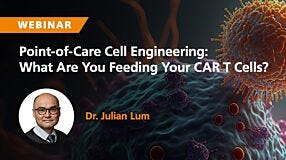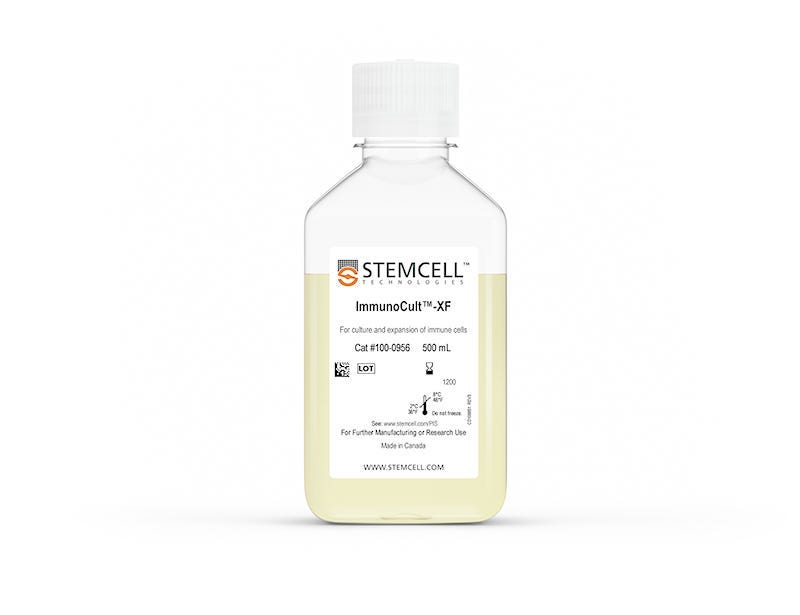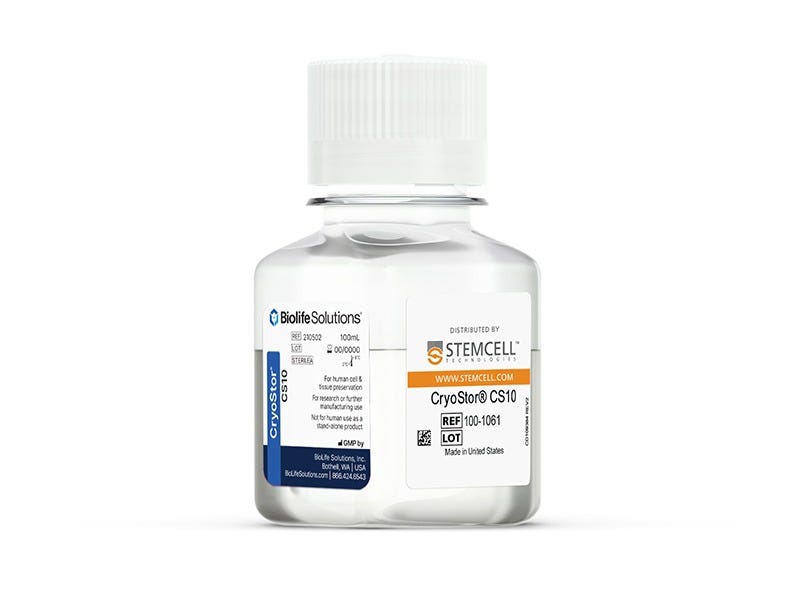Combining CAR T Cells with STING Agonists to Fight Solid Tumors
In this webinar, Dr. Uslu describes how IMSA101 enhances CAR T function through STING agonist-induced IL-18 secretion and how these findings lay the foundation for advancing the combinatorial approach into a clinical setting.
This webinar is part of the “Translational T Cell Talks: Scaling for the Future” event hosted in collaboration with Scientist.com on June 11, 2024. View the rest of the talks and read the Q&A transcripts.
Chimeric antigen receptor (CAR) T cell therapy has limited efficacy in treating solid tumors, and new approaches are needed to improve patient outcomes. As a strategy to improve the therapeutic success of CAR T cells directed against solid tumors, Dr. Uslu and his colleagues at the Center for Cellular Immunotherapies, University of Pennsylvania, tested the combinatorial use of CAR T cells and IMSA101—a newly developed stimulator of interferon genes (STING) agonist. In two syngeneic tumor models, improved overall survival was observed when mice were treated with intratumorally administered IMSA101 in addition to intravenous CAR T infusion.
In this webinar, Dr. Uslu describes how IMSA101 enhances CAR T function through STING agonist-induced IL-18 secretion and how these findings lay the foundation for advancing the combinatorial approach into a clinical setting.
This webinar is part of the “Translational T Cell Talks: Scaling for the Future” event hosted in collaboration with Scientist.com on June 11, 2024. View the rest of the talks and read the Q&A transcripts.
In this webinar, Dr. Uslu describes how IMSA101 enhances CAR T function through STING agonist-induced IL-18 secretion and how these findings lay the foundation for advancing the combinatorial approach into a clinical setting.
This webinar is part of the “Translational T Cell Talks: Scaling for the Future” event hosted in collaboration with Scientist.com on June 11, 2024. View the rest of the talks and read the Q&A transcripts.
Publish Date:
August 26, 2024
Request Pricing
Thank you for your interest in this product. Please provide us with your contact information and your local representative will contact you with a customized quote. Where appropriate, they can also assist you with a(n):
Estimated delivery time for your area
Product sample or exclusive offer
In-lab demonstration
By submitting this form, you are providing your consent to STEMCELL Technologies Canada Inc. and its subsidiaries and affiliates (“STEMCELL”) to collect and use your information, and send you newsletters and emails in accordance with our privacy policy. Please contact us with any questions that you may have. You can unsubscribe or change your email preferences at any time.






